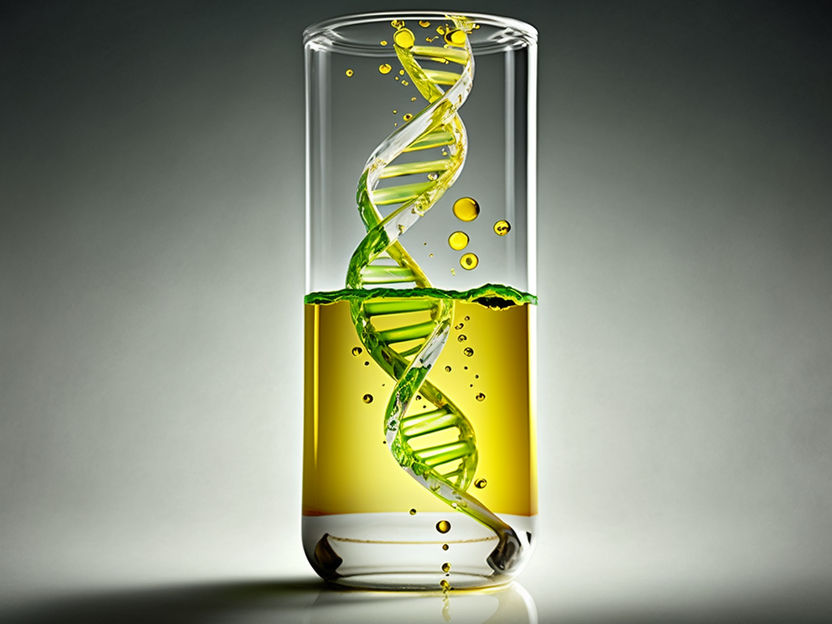Genetically harmful compounds detected in vegetable oils
Genotoxins discovered for the first time using a novel method
Advertisement
Vegetable oils rich in unsaturated fatty acids are highly recommended for a healthy diet. But these oils are not as healthy as thought: Prof. Dr. Gertrud Morlock, holder of the Chair of Life Sciences at Justus Liebig University Giessen (JLU), together with PhD student Daniel Meyer, has for the first time detected considerable amounts of genotoxins in vegetable oils using a novel method. The research team examined 31 products in which up to eight different genotoxins were detected. olive oil, sunflower oil, rapeseed oil, safflower oil, linseed oil, sesame oil, coconut oil, peanut oil, hemp oil and walnut oil, including organic products, were analyzed. The results have been published in the journal Food Chemistry.

Symbol image
Computer-generated image
Genotoxic substances trigger changes in DNA, the genetic material of cells. Characterization using high-resolution mass spectrometry revealed that oxidized linolenic acid was a source of genotoxicity in all samples. The amount of harmful compounds in the studied oils increased with increasing storage in air. In particular, the healthy unsaturated fatty acids are known to be susceptible to oxidation, leading to the formation of epoxides. "Epoxidized fatty acids, for example, are already known to have genotoxic effects, but have not yet been detected in vegetable oils," said first author Prof. Dr. Morlock. "Our analyses are of great importance, because plant oils are in almost all foods, in many dietary supplements and cosmetics."
In the novel method, the research team combined methods from chemistry and biology on one surface: chromatographic separation and effect detection. "With this method, one obtains significantly more meaningful active ingredient profiles than previously possible and can visualize genotoxic compounds in complex samples in a more differentiated manner and with higher sensitivity," says Prof. Dr. Morlock. She has established this effect-related analysis using so-called planar chromatography at JLU. "The methods currently used in food analysis do not properly reflect the contaminant load of genotoxins in complex foods such as oils, because their signals are overridden by overpowering other signals." Prof. Dr. Morlock therefore advocates a paradigm shift in analytics toward planar image-based compound profiling to increase consumer safety, especially for basic foods.
To disseminate the powerful new method, it has been miniaturized as a portable open-source system that she developed with her research group and that is unique in the world. Compared to other methods, it is highly sustainable in terms of lower material use and consumption, as well as the small footprint that replaces two laboratories.
Further research is needed on the question of whether the oral mucosa, esophagus and skin, as the first points of contact, can handle the genotoxins and whether the liver - should the genotoxins arrive there at all - can detoxify these substances. "Initial studies of simulated metabolism with liver enzymes show that most genotoxins can be detoxified by a healthy liver," said Prof. Dr. Morlock. In addition, further studies need to be conducted to find processing practices, product formulations and suitable storage conditions that ensure the stability of oil-containing foods, dietary supplements and cosmetics over the recommended product lifetime.
Note: This article has been translated using a computer system without human intervention. LUMITOS offers these automatic translations to present a wider range of current news. Since this article has been translated with automatic translation, it is possible that it contains errors in vocabulary, syntax or grammar. The original article in German can be found here.

























































